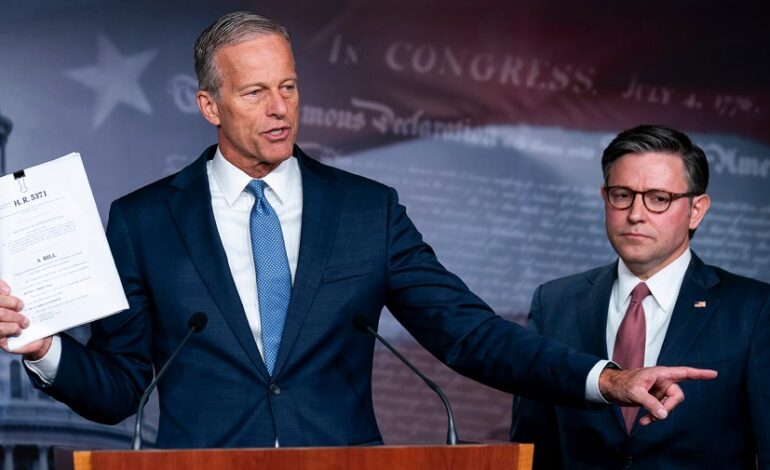Republicans Navigate Health Care Debate Amid Shutdown Tensions

Republicans find themselves on the defensive as the ongoing government shutdown has shifted focus to health care issues. Democrats have effectively framed the shutdown debate around the potential rise in insurance premiums, putting pressure on their Republican counterparts to respond. Most Republicans express concern about the financial implications of increased premiums but remain hesitant to support the Democrats’ proposal for extending enhanced tax credits under the Affordable Care Act (ACA).
The standoff has significant implications for millions of Americans who depend on affordable health insurance. The ACA, enacted in 2010, has been a contentious issue in U.S. politics, with Republicans traditionally opposing its measures. In September 2023, as the shutdown loomed, the urgency for a resolution intensified. Without further action, many health care plans could see costs rise, leading to increased premiums that would burden families across the nation.
Republican Hesitation on Health Care Solutions
Despite acknowledging the risks associated with rising insurance costs, the GOP remains divided on how to address the issue. Many party members fear that supporting the extension of enhanced ACA tax credits could alienate their voter base, which largely favors reducing government intervention in health care. The reluctance to endorse the tax credits reflects a broader strategy to appeal to conservative constituents while navigating the immediate crisis.
Party leaders are scrambling to find a viable path forward. Some suggest that addressing the health care concerns head-on could offer a political advantage. By presenting a unified front on health care, Republicans might counteract the narrative pushed by Democrats that they are unwilling to prioritize the health needs of American families.
Impacts of the Shutdown on Health Care Access
The potential consequences of the shutdown extend beyond politics; they may affect the health care access of millions. If the government does not reach an agreement, funding for health programs could be disrupted, leading to delays in services and coverage. As noted by various health policy experts, the ramifications would disproportionately impact low-income individuals who rely on government assistance for their health care needs.
As discussions continue, the pressure mounts on both sides to compromise. Democrats emphasize the necessity of maintaining affordable health care options, arguing that the enhanced tax credits are essential for protecting vulnerable populations. Conversely, Republicans must navigate their internal divisions while addressing the urgent demands of constituents who fear the financial burden of rising premiums.
The outcome of this standoff may not only reshape the political landscape but also have lasting effects on health care policy in the United States. As the debate unfolds, all eyes will be on Congress to see whether a bipartisan solution can emerge amid the competing priorities of party loyalty and public welfare.
In the coming weeks, as the shutdown continues, the conversation around health care will likely remain at the forefront of political discourse, highlighting the critical intersection of governance and the well-being of American citizens.






